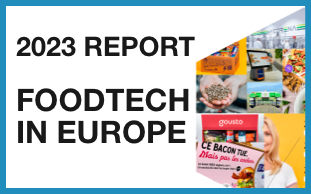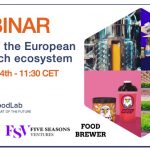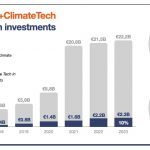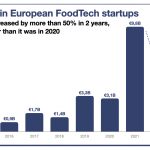Imagine you are working on a revolutionary ingredient. How can you put it in the hands of consumers? The current CPG industry may be looking at you with interest but also with skepticism. Additionally, governments and regulators can be tempted to slow the process to protect old industries. Faced with these challenges, startups have adopted an extensive range of strategies, many of which have recently hit the news. Here is a quick rundown.
🐂 GO AHEAD, AND DON’T LOOK BACK: THE B2C APPROACH
For entrepreneurs, it is often tempting to go directly to consumers. Plant-based startups such as Beyond Meat and Impossible Foods may look like obvious examples here. However, their success was first due to their ability to deal with restaurants and QSR chains. And only after that, they have found success in the supermarket aisles.
However, things are not always that smooth. Retailers and regulators can be a significant barrier. Think about how startups working on insects-for-human-consumption have been battling over the last five or six years. I met Jimini’s founders in 2012 as they were launching their edible insects in France. I have a deep admiration for their resilience as eight years on, they are still battling with European and French regulators.
🐜 ANIMAL FEED FIRST
Many entrepreneurs working on next-generation ingredients, notably insect proteins, chose to focus on animal feed. This market is significant and less regulated. But compared to B2C markets, it is more rational (as the decision-maker is not the “consumer”) and hence more price-driven.
Protix, the Netherlands based insect startup, just raised €15.5M. It comes in the wake of huge investments in French startups Ynsect ($225M) and Innovafeed (€140M) and smaller ones across the continent.
Most of these startups have common expansion plans in new markets. For instance, Protix is the supplier of many European startups working on edible insects. And Ynsect wants to sell its YnMeal solution for sports nutrition.
🐶 PET FOOD FIRST
As mentioned, animal-feed is price-driven. So, it may not apply to all types of innovation. So, another way to reduce the burden of regulation linked to human foods is to target pets. Pet owners are keen to try new things and are ready to spend a lot of money on their companions.
This may apply to insects but also to new alternative proteins such as cellular agriculture and precision fermentation.
🎭 B2C PROTOTYPE AS A PROOF OF MARKET FOR YOUR B2B INGREDIENT
When you are not focusing on developing consumer products but on a revolutionary ingredient, you may want to look for a B2B strategy. But how can you get big companies to get a look at you? A good idea is to launch a demonstration of what they could do with your ingredient. That what Nature’s Fynd just did. This week, it launched two products: a plant-based cream cheese and a meatless burger:
- The startup has raised more than $150M until now, notably from CPG leaders such as Danone.
- It uses a protein called “Fy” created through fungi fermentation. Its uniqueness is in the process itself. A few years ago, the company identified an extremophile fungus in Yellowstone national park. Used to the place’s extreme conditions, it can ferment in a tray in the open air. This process is much more convenient and cheaper than the traditional fermentation process (which often imply costly bioreactors).
⇒ Nature’s Fynd already has large corporations (Danone, ADM) as investors. This first batch may be “just” a demo of what big CPG companies would be able to do with this new fungi protein.
🗣️💰 HAVE WELL-KNOWN INVESTORS TALK ABOUT YOU
An excellent way to spread your message and “cross the chasm” between early adopters and the mass market is to get influential people to talk about your product. You can hire Instagram influencers, but you can also have:
- Bill Gates, one of Nature’s Fynd’s investors is promoting his new book on climate while declaring that rich countries should shift 100% to lab-grown proteins. Even if it seems like a deliberate move, the big stir.. creating debate.
- Last summer, Oatly raised $200M, mostly from Blackrock (unsexy) and also from stars such as Oprah Winfrey and Jay-Z (sexy).
SINCE YOU’RE HERE
Natufia, the Estonian kitchen urban farm builder raised $3.5M and relocated to Saudi Arabia – I tasted Halo Top’s ice cream for the first time (it’s really good), you should try it – The Dutch grocery delivery startup, Picnic, is coming to Lille – Dark Stores still on top of the news, GoPuff, the US leader is in talks to acquire UK-based Fancy – Standard Cognition raised $150M for its cashierless checkout – Interesting post from FoodHack about the potential future FoodTech hubs – Great article about Pieter Pot, a Dutch circular supermarket which raised €2.7M last year. It solves the issue of packaging with glass pots







